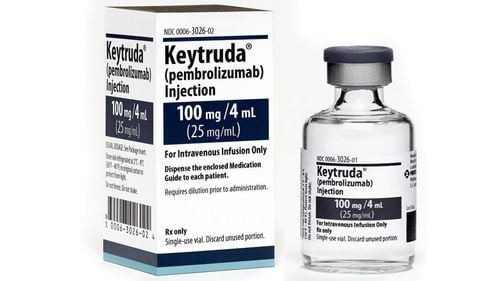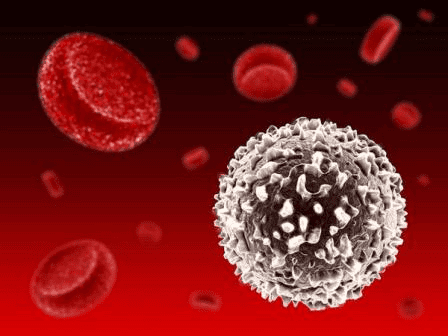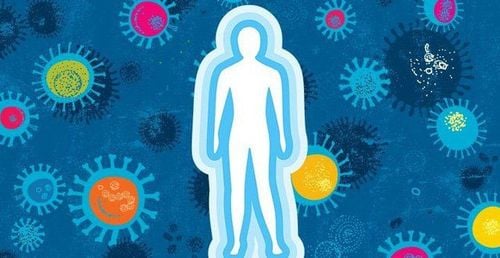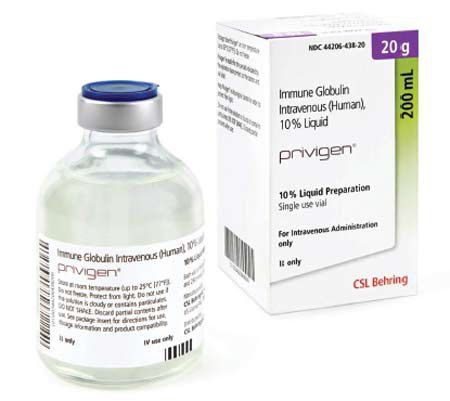This is an automatically translated article.
The immune system is necessary for everyone's survival, keeping us healthy and fighting off pathogens from the environment. Without it, the body will be attacked by bacteria, viruses and parasites.
1. Immunity and classification of the immune system
Everyone's immunity is different, but as a general rule it works better as an adult. It's also why teenagers and adults tend to get sick less often than young children.
Once an antibody has been made, a copy of it remains in the body so that if the same antigen reappears, it can be destroyed more quickly. That's why with some diseases like chickenpox you only get infected once. This is called immunity.
There are three types of immunity in humans namely innate, adaptive and passive:
1.1 Innate Immunity Everyone is born with a certain amount of immunity. The human immune system, similar to that of many animals, is used to attack harmful elements as soon as they enter the body. This innate immunity serves as a first line of defense against pathogens – such as the skin and mucous membranes of the throat and intestines.
This reaction is basic and nonspecific. If the pathogen tries to evade the innate immune system, then adaptive or acquired immunity will take place.
1.2 Adaptive immunity Adaptive immunity protects the body from pathogens when they enter the body. When people are exposed to diseases or are vaccinated, we create a sufficient amount of antibodies to fight different pathogens. This is called immunogenic memory because the immune system has the ability to remember previous enemies.
1.3 Passive Immunity This type of immunity is "borrowed" from another source, but it doesn't last for long. For example, a baby receives antibodies from the mother through the placenta before birth and in breast milk after birth. This passive immunity protects the baby from certain infections during the first years of life.
Immunization is the process of introducing weakened antigens or pathogens into the body but still producing antibodies. Because the body keeps copies of the antibody, it is protective if the threat reappears later.
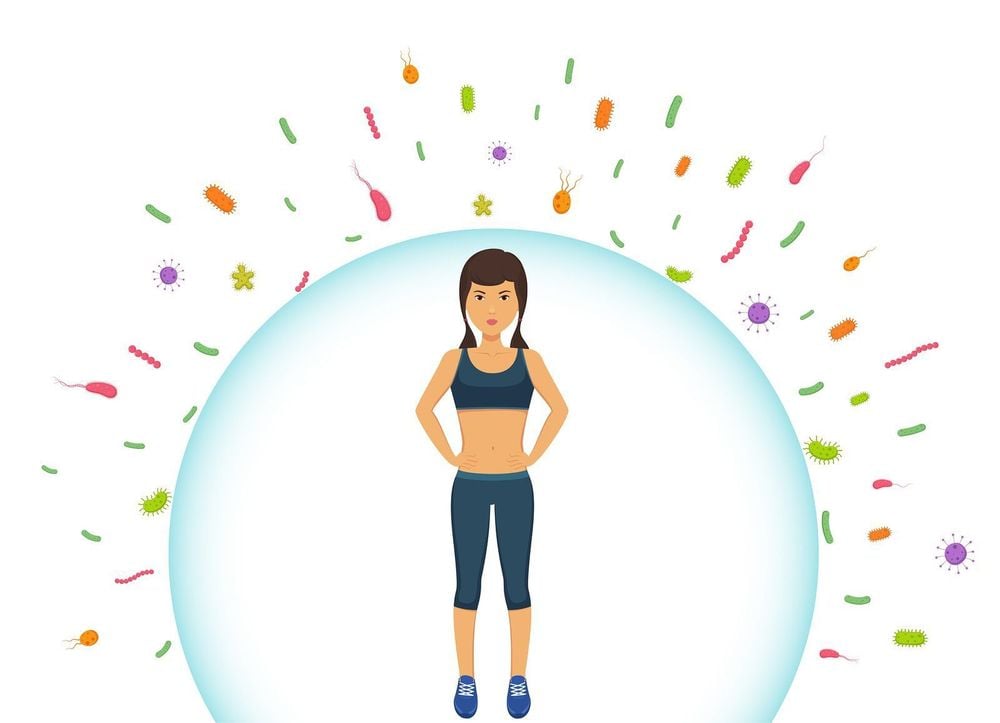
Hệ miễn dịch bảo vệ cơ thể khỏi sự tấn công bởi vi khuẩn, virus và ký sinh trùng
2. How the immune system works
The immune system needs to detect enemies from all sides. It does this by recognizing proteins found on the surface of cells. It learns to ignore its own proteins from an early stage.
2.1 Antigens cause an immune response when entering the body In many cases, antigens can be bacteria, fungi, viruses, toxins. But it can also be faulty or dead cells. Initially, a variety of cell types work together to recognize antigen entry.
2.2 Role of B lymphocytes When B lymphocytes detect antigens, they begin to secrete antibodies (antigen stands for "antibody generator"). Antibodies are special proteins that neutralize the respective antigens.
Each B lymphocyte produces a specific antibody. For example, some B cells can produce an antibody against the bacteria that causes pneumonia while others can recognize the common cold virus.
Antibodies are part of a group of chemicals called immunoglobulins, which have many roles in the immune response:
Immunoglobulin G (IgG): Marks bacteria so other cells can recognize and deal with them. with them. IgM: An expert in killing bacteria. IgA: Gathers in body fluids, such as tears and saliva, where it protects the portals to the body. IgE: Protects against parasites and also causes allergies. IgD: Still binds to B lymphocytes, helping them initiate an immune response. Antibodies block the antigen, but don't kill it, just mark it. The killing is the job of other cells, such as phagocytes.
2.3 Role of T lymphocytes There are different types of T lymphocytes:
Helper T cells (Th cells) - they coordinate immune responses. Some combine with other cells, and some stimulate B cells to make more antibodies. The rest attract more T cells or cell-eating phagocytes. Killer T cells (cytotoxic T lymphocytes) - as the name suggests, these T cells attack other cells. They are especially useful against viruses. They work by recognizing small parts of the virus on the outside of infected cells and destroying those cells.

Tế bào lympho B và tế bào lympho T
3. When does the immune system stop working?
Sometimes, the immune system makes a mistake and identifies a substance as harmful when it's not - like pollen or pet dander. When the immune system works to fight these factors that cause an allergic reaction.
The body also cannot resist every enemy. Even so, the immune system is occasionally weakened. Therefore, there are some diseases that humans cannot control.
Not eating healthy, being sedentary, not getting enough sleep, and being under constant stress can all contribute to a weakened immune system. When the immune system is weakened, bacteria, viruses or toxins can enter the body causing illness.
4. Immune System Disorders
Because the immune system is so complex, it is more likely to cause disorders. There are three types of immune disorders as follows:
4.1 Immune Deficiency Immunodeficiency occurs when one or more parts of the immune system fail to function. Immunodeficiency can be caused in a number of ways, including age, obesity, and alcoholism. In developing countries, undernutrition is a common cause. AIDS is an example of an acquired immunodeficiency disease.
In some cases, immunodeficiency can be inherited, for example, in chronic granulomatous disease where phagocytosis does not function properly.
4.2 Autoimmune In autoimmune conditions, the immune system mistakenly targets healthy cells, rather than foreign pathogens or faulty cells. Autoimmune diseases include celiac disease, type 1 diabetes, rheumatoid arthritis, and Graves' disease.
4.3 Hypersensitivity With sensitization, the immune system overreacts in a way that damages healthy tissue. An example is anaphylaxis in which the body reacts to an allergen so strongly that it can be life-threatening.
5. Methods to improve the immune system
Exercise: Being sedentary not only makes you feel sluggish, it can also slow down your immune system. Exercise, on the other hand, helps boost immunity. Healthy diet: Proper nutrition is essential for the immune system to function properly. A diet high in empty calories can not only lead to weight gain, but it can also make you more susceptible to infections. In addition, being overweight with illness can also drag down the immune system. A diet rich in vitamins and antioxidants can boost resistance to infection. So choose a menu rich in dark green, red, yellow and orange fruits and vegetables packed with antioxidants for your daily meal. Eat more berries, citrus fruits, kiwi, apples, red grapes, kale, onions, spinach, sweet potatoes, and carrots.
Other immune-boosting foods include fresh garlic, which may have antiviral and antibiotic properties, and chicken soup. Studies show that, if you have a cold or flu, a bowl of steamed chicken soup can reduce inflammation and help you get better faster.
And mushrooms like reishi, dance, and shiitake can have a powerful effect on immune function as well as boosting the production of substances that help the body fight infections.
Get enough sleep: Frequent bouts of insomnia can not only make you feel tired during the day, but also make you more susceptible to illness, including colds, flu, and other infections. Long-term, poor sleep has also been shown to increase the risk of other health problems, including obesity and diabetes. It is difficult to accurately measure the protective effect of sleep. Like antioxidants, sleep can help reduce stress and prevent cells from becoming weak and damaged. But clearly, sleep - at least 7 hours a night - is associated with increased resistance to infectious diseases.

Ngủ đủ giấc giúp giảm căng thẳng, ngăn chặn các tế bào bị suy yếu và bị tổn hại
Manage stress: When your body is under constant stress, you are more vulnerable to everything from the common cold to chronic illnesses. Being under constant stress - adversely affects health. That's because stress causes the body to produce more hormones, such as cortisol and adrenaline, that weaken the immune system. Chronic stress is linked to heart disease and increased blood pressure, and it can also have an effect on white blood cell function. Avoid alcohol and drug abuse: Drinking moderate amounts of alcohol may have a number of health benefits, such as a reduced risk of heart disease. 1-2 drinks per day for a man, or 1 drink for a woman. But drinking too much alcohol can inhibit the function of white blood cells and reduce the body's resistance to infection. Use of stimulant drugs, including marijuana, has a similar effect on white blood cells, weakening the immune system. Promotes healthy relationships: Research shows that people with close friendships and many good relationships tend to be healthier than others. A good sexual relationship can provide more benefits to the immune system. One study of college students found that those who had sex once or twice a week had higher levels of an immune protein called immunoglobulin A (IgA) than those who had less sex. Sex can also help the immune system by reducing stress and improving sleep.
Articles refer to sources: medicalnewstoday.com, webmd.com
MORE:
Meaning of IgM/IgG index in diagnostic tests for dengue What are antibodies? Role and Antibody Formation What is Immune Serum (Globulin)?




